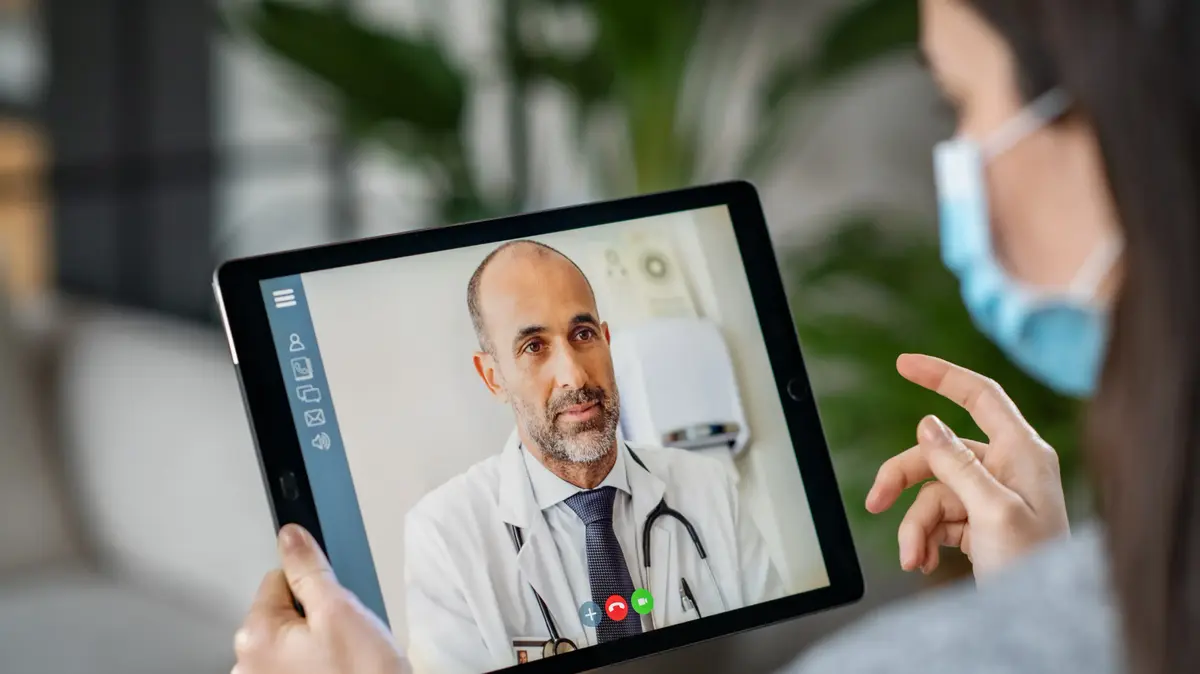It is most often associated with entertainment and video games. Virtual reality, in which you look through a helmet, can also act as a health assistant. And more or less effectively reduce anxiety, stress and also the feeling of pain during certain medical procedures. More and more doctors are using this technology for the benefit of their patients.
How it works ?
The basic principle is first of all that of the diversion of attention. By isolating the patient in a totally different universe from that, often anxious, of a treatment room, we manage to drastically lower his stress level. This is the simplest case, which takes the form of a recreational moment thanks to classic or 360 ° video projections, as the private hospital Le Bois, in Lille (Nord), offers its patients. palliative care.
Virtual reality (VR as specialists call it) allows us to go much further. Thanks to images associated with sounds expertly chosen after long scientific research, it is possible to bring a patient into a state of medical hypnosis. "
The first step is to place the patient in a state of relaxation through a cardiac coherent breathing session, explains Tanguy Perrin, co-founder of Deepsen, a Lyon-based company that has been selling its VR medical solution for two and a half years to around forty of hospitals and healthcare establishments in France. He is then equipped with a virtual reality helmet thanks to which he watches a video program made of real images in the universe of his choice (sea, mountain, countryside, etc.). The experience is completed by a particular sound environment, mixing voices and music whose frequencies favor entry into a state of self-hypnosis. "
When is virtual reality useful?
There are many applications. The Mayenne firefighters have been using a Bliss helmet for a month, marketed by the company L'Effet Papillon de Laval. They can therefore offer a victim who is being cared for after a fall or feeling unwell, before the EMS intervention or during transport to the emergency department, to forget the pain by offering themselves a virtual reality session at from a headset connected to a simple smartphone.
The aim is also to reduce the traditional drug use to reduce the feeling of pain during a medical procedure, "wherever care generates pain, continues Tanguy Perrin, from the fear of a needle to operations heavy surgical ". Several thousand patients have already, for example, experienced the Deepsen helmet during orthopedic hip operations or during gynecological procedures.
Another solution, called Bliss and developed by the company Papillon Effect located in Laval (Mayenne), is it used to divert the attention of patients during bone marrow punctures, biopsies or dental surgery operations . "It is an alternative complement to anesthesia", specifies Olivier Desebbe, anesthesiologist and intensive care doctor at the Clinique de la Garde in Lyon. During a cardiac operation carried out at the beginning of last year by percutaneous route, "the morphine patient could even be arrested after ten minutes of intervention", welcomes the doctor.
Effective but not miracle
No question, however, today, of totally abandoning the classic anesthetic option in favor of the state of hypnosis obtained by this virtual reality tool. "The technique works on most subjects, but the effectiveness all the same depends on the level of reception of the patients," notes Mélanie Peron, founder of the Butterfly Effect. It will be more difficult to get very good results from people who remain in total control and find it difficult to surrender to another world. "
How to benefit from it?
The implementation of virtual reality technology remains at the discretion of doctors and hospital services (around fifty are equipped in France). The installation cost amounts to a few hundred or thousands of euros (200 € monthly rental for a Deepsen device, for example), and remains free for the patients treated.









